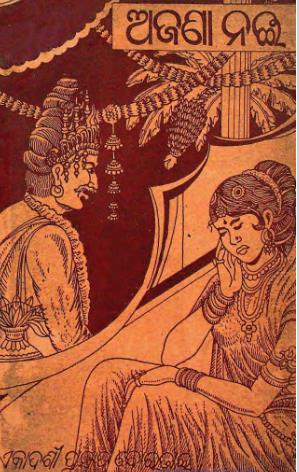Ajana Nai, a remarkable drama by Ekadasi Prasad Boitai, published in 1986, stands out as a significant contribution to Odia literature. This work is not just a play; it captures the intricate tapestry of human relationships and societal challenges faced within the cultural context of Odisha. Through its engaging narrative and well-developed characters, Boitai sheds light on various social issues that resonate with audiences, making it a timeless piece.
At the heart of Ajana Nai is the exploration of the struggles faced by individuals in a changing society. The title itself translates to “Unseen Tomorrow,” suggesting themes of uncertainty and hope. The drama encapsulates the lives of ordinary people, portraying their dreams, aspirations, and conflicts that arise in their pursuit of happiness. The characters are vividly drawn, each representing different facets of society, from the common man to those in positions of power. This diversity allows readers to connect with the play on multiple levels, as it touches upon universal themes of love, betrayal, ambition, and the quest for identity.
The plot unfolds in a setting that reflects the socio-economic conditions of the time, showcasing the impact of modernization on traditional values. Boitai skillfully incorporates elements of realism, vividly depicting the struggles of his characters as they navigate the challenges posed by an evolving society. Through engaging dialogues and interactions, readers can witness the emotional and social conflicts that arise, emphasizing the importance of understanding and compassion in dealing with personal and collective dilemmas.
One of the standout features of Ajana Nai is its capacity to provoke thought and reflection. Boitai doesn’t shy away from addressing difficult topics such as poverty, corruption, and the widening gap between different social strata. As the characters grapple with these realities, the audience is left to contemplate the implications of these social issues in their own lives and communities. The moral dilemmas faced by the characters serve as a mirror to society, urging readers to reflect on their roles within their social framework.
The dramatic structure of the play adds to its effectiveness. Boitai employs a rich array of literary techniques, including symbolism and metaphor, to enhance the emotional depth of the narrative. The pacing of the story, complemented by its climactic moments, keeps the audience engaged and invested in the characters’ fates. The emotional resonance of the dialogues captures the essence of human experience, drawing readers into the characters’ internal worlds and their struggles.
In addition to its strong thematic concerns, Ajana Nai also celebrates Odia culture and tradition. Boitai weaves cultural references and local idioms throughout the script, enriching the narrative and grounding it in the reality of Odia life. This cultural authenticity not only enhances the play’s relatability but also serves to honor and preserve the unique heritage of the region.
In conclusion, Ajana Nai by Ekadasi Prasad Boitai is a profound exploration of social dynamics and human resilience. It transcends the boundaries of time, remaining relevant to contemporary audiences as it addresses universal themes of love, conflict, and social justice. Through its powerful storytelling and rich character development, the play invites readers to engage with the complexities of life, making it an enduring piece in the landscape of Odia drama. Whether read or performed, Ajana Nai resonates deeply, leaving a lasting impact on its audience.
Books Info
| Books name | Ajana Nai |
| Author | Ekadasi Prasad Boitai |
| No Of pages | 122 |
| Publisher | Bhagiratha Prakashana |
| Publication | 1986 |
| Printed At | Kedar Printing Press |
| Distributor | NA |

